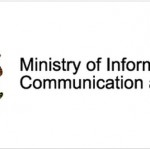How KPIs changed a government. A Malaysian approach

Nowadays, due to increasing competition in the business world, most of the firms and organizations are obliged to adjust to new ways of enhancing their performance. This improvement is mainly linked with the implementation of performance management systems, new strategic directions, or important shifts in the strategy of the organization.
Malaysia took into consideration these aspects, especially after being faced with drastic changes in the governing party. Following six decades of performance management initiatives, combined with accountability, planning and coordination, the results were not satisfactory for Malaysia. The efforts directed towards increasing efficiency “were extensive, somewhat unconnected, and, until recently, rarely emphasized measurable outcomes,” said John Anthony Xavier, professor at Putra Malaysia University, and former director of research in the Public Service Department. As a result, the Malaysian government decided to employ Key Performance Indicators (KPIs) as one of their main performance measurement tools.
In 2009, Prime Minister Datuk Seri Najib Razak created a specialized unit to supervise the implementation of the performance management system, naming it “Performance Management and Delivery Unit (PEMANDU)”. The official website presents a detailed overview of the program, besides being the official communication portal as well, designed to present the public with recent results that it has achieved.
The structure of the program was created in accordance with the 7 main areas of interest, named National Key Results Areas, which serve the purpose of creating both short and long term initiatives in order to improve these sectors. Six ministers have been appointed to lead the mission of fulfilling the six National Key Results Areas (NKRA) which focus on:
- Reducing crime, which includes a number of initiatives destined to descend the trend in crime and to increase public satisfaction of police services;
- Fighting Corruption, which will prevent resources being taken away from the economy of the country, and it will ensure a fair playing field for all the participants within the economy;
- Assuring Quality Education, which generated a 12-year programme- The National Education Blueprint- that ensures short and long term changes in the education system of the country;
- Raising Living Standards of low-income Households, which aims to reduce the disparity between the economically advantaged and disadvantaged, as well as raising the income level of the country;
- Improving Rural Development, which focuses on offering the people who chose to live in rural areas a healthy and sustainable living;
- Improving Urban Transport, which will fix the public transport within the Klang Valley and Kuala Lumpur, as these are the major economical areas;
- Addressing Cost of Living, which is designed to offer immediate term measures for the living costs of Malaysians affected by the global food and energy prices, while assessing other strategies that will address the rising cost of living within a long term plan.
The purpose of the implementation of this 7-point program is to ensure accountability among the administration and the civil public service, and to ensure the transparency that each government is looking forward to offer to its citizens. Due to the presence of these National Key Results Area, people can have an objective evaluation of the effectiveness of the leadership and the implementation degree of these strategies.
Together with the National Key Result Areas, the government of Malaysia has defined the vision, mission and objectives of the country for 2020 by creating 4 pillars to support its strategy:
“1 Malaysia: People First, Performance Now” has become the administrative tag line, with highlights on the efforts that the government is putting into achieving the 2020 vision. In 2009, the Performance Management and Delivery Unit (PEMANDU) was established to “oversee the implementation and assess progress of the Government Transformation Program (GTP) and Economic Transformation Program (ETP), facilitate as well as support delivery of both the National Key Result Areas (NKRAs), and National Key Economic Areas (NKEAs)” as stated on their official website.
Additionally, the role of the Performance Management and Delivery Unit was also to support the Unity and Performance Minister in implementing the Key Performance Indicators system, and in helping the government achieve the ideals settled in their vision and become a high income nation by 2020.
Performance management reforms in Malaysia have resulted in improving efficiency within the bureaucratic and public service delivery systems, besides helping the economy function very well in the competitive South East Asia region. The case of Malaysia’s government is just another example of how a thoroughly implemented performance management system can help increase performance within any type of organization.
References:
- Ministry of International Trade and Industry, the Government of Malaysia
- Performance Management and Delivery Unit, The Government of Malaysia
- Catalysing Vision 2020 through 1Malaysia, People first, performance now
Image sources:

Tags: Government - State / Federal performance, Government performance, Performance in Malaysia, sustainability KPIs







